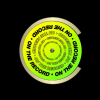-
 play_arrow
play_arrow
Clubalicious Clubalicious Radio
-
 play_arrow
play_arrow
London Calling Podcast Yana Bolder

Los Angeles, CA (November 4, 2024)—A multi-hyphenate of the highest order—music/TV/film producer, musician, composer, conductor, record executive and countless other titles—Quincy Jones died Sunday, November 3, at the age of 91.
Jones’ passing brings to a close a 70-year career that saw him win 28 Grammy Awards out of 80 nominations, as well as a Grammy Legend Award in 1992. During that time, he worked with the likes of Frank Sinatra, Count Basie, and most prominently, Michael Jackson, for whom he produced Off The Wall, Bad and the highest-selling album of all time, Thriller. Additionally, Jones produced USA For Africa’s “We Are The World,” a 1985 all-star charity single that raised more than $70 million for famine victims in Ethiopia.
Born in Chicago on March 14, 1933, Jones had a tumultuous childhood, as his mother was institutionalized following a schizophrenic breakdown when he was 10; his parents were soon divorced and his father remarried. During that time, young Jones was attacked on the streets of the rough neighborhood he lived in; jumped by a gang, he was stabbed multiple times—in a hand with a knife and in the temple with an ice pick. With that, Jones’ father moved the family to Bremerton, Wash. and later Seattle after World War II ended.
While living there, Jones, then only 14, was introduced to a kindred musical spirit only two years older than him—Ray Charles—and the two hit it off, becoming lifelong friends. Prodded by Charles to pursue music, Jones earned a scholarship to Seattle University, which he left after a semester to make use of another scholarship—this one, to attend what would become Berklee College of Music in Boston. After college, Jones moved to New York City, where became known for his trumpet skills and arrangements, picking up gigs as surprising as playing in Elvis Presley’s backing band in The King’s first half-dozen television appearances.

Being in charge was always Jones’ forte, however, and that manifested itself early on as he became the trumpeter and musical director for Dizzy Gillespie’s big band on tours of the Middle East and South America. Back in New York, his reputation as an arranger grew, and despite only being in his early 20s, Jones was soon building arrangements for the likes of Duke Ellington, Diana Washington and others—including his now-successful friend, Ray Charles.
In 1957, he briefly moved to Paris where he studied composition with Nadia Boulanger and Olivier Messiaen—an opportunity that he recalled fondly on Facebook this past March when writing about the impact of mentoring, citing Boulanger as one “of the individuals who told me I was worth another day.”
Returning to the U.S., Jones formed his own jazz orchestra to muted success, but was appointed as a vice president of Mercury Records in 1961, making him the first African-American to take on that role. Asked soon after to compose music for Sidney Lumet’s film The Pawnbroker, he left Mercury and New York to set up in Los Angeles, where he went on to compose upwards of 40 movie scores over the years for films such as In Cold Blood (famously against the wishes of a furious Truman Capote), The Italian Job, In the Heat of the Night, The Getaway, They Call Me Mister Tibbs and Bob & Carol & Ted & Alice. He also wrote numerous TV show themes for Roots, Mad TV, The Bill Cosby Show, Rebop, Ironside and perhaps most notably, a tune titled “The Streetbeater”—better known as the theme for Sanford and Son.
Concurrent with that success was his ever-growing arrangement work, as the 1960s saw him handle arrangements for Frank Sinatra, Dinah Washington, Sarah Vaughan, Ella Fitzgerald and many more. Meanwhile, he also produced a string of four singles for Lesley Gore, each of which sold a million copies.
Classic Tracks: USA For Africa’s “We Are the World”
In the mid-1970s, Jones produced the soundtrack to the film adaptation of the Broadway hit The Wiz (itself a musical adaptation of The Wizard of Oz). While the 1978 film flopped, it led one of its stars, a teenaged Michael Jackson, to ask Jones to produce his next album. The resulting record, Off The Wall, recorded by engineer Bruce Swedien, was a career-making smash in 1979, cementing Jackson as an adult solo artist who had moved on from his boy-band youth in The Jackson Five. As the album went on to sell 20 million copies, another collaboration was inevitable, and Jones, Jackson and Swedien teamed up again for 1982’s Thriller, which became the highest-selling album of all time at 65 million copies. Closing out their triumvirate of albums was 1987’s Bad, which weighed in at 45 million copies sold. In the middle of that incredible run of albums, Jones also produced and conducted on USA For Africa’s “We Are The World,” wrangling an all-star choir together during a now-legendary all-night, post-American Music Awards session, where Jones taped a warning note on the door for all in attendance: “Check your ego at the door.”

With his background in TV and film composition, perhaps it was inevitable that Jones would grow to take on more significant creative roles for those mediums, as he co-produced 1985’s The Color Purple in addition to writing the film’s score, and produced the 1990s sitcom The Fresh Prince of Bel Air. In later years, he turned to activism and philanthropy through his Quincy Jones Foundation, but also retained ties to the recording world through sporadic album releases like Back on the Block and Q’s Jook Joint as well as running Qwest Entertainment. He also maintained a marketing relationship with Harman International, lending his name to a number of products.
Married three times, Jones had seven children. When he passed Sunday in his home, he was with close family, according to reports; no cause of death has been released.
For more on Jones’ life and outlook, we recommend Mix’s 2007 interview with him.
Written by: Admin
Similar posts
Recent Comments
No comments to show.Featured post

Latest posts
Current show

Get Twisted
Tough Love
London-based duo Tough Love has been at the forefront of the house scene for some time now since they started out in 2011. Their distinct production and energetic, bass-heavy DJ sets have created a cult following of hard-core fans across the UK and beyond.
closeUpcoming shows

Love To Be
The Global Connection
21:00 - 23:00
On The Record
Insomniac Events
23:00 - 00:00
Femme House
Lp giobbi
00:00 - 01:00
On The Record
Insomniac Events
01:00 - 02:00
Fresh Is Fresh
This Weeks Hottest Releases
02:00 - 09:00Chart
Powered by Dee jay promotions visit us












 Invalid license, for more info click here
Invalid license, for more info click here